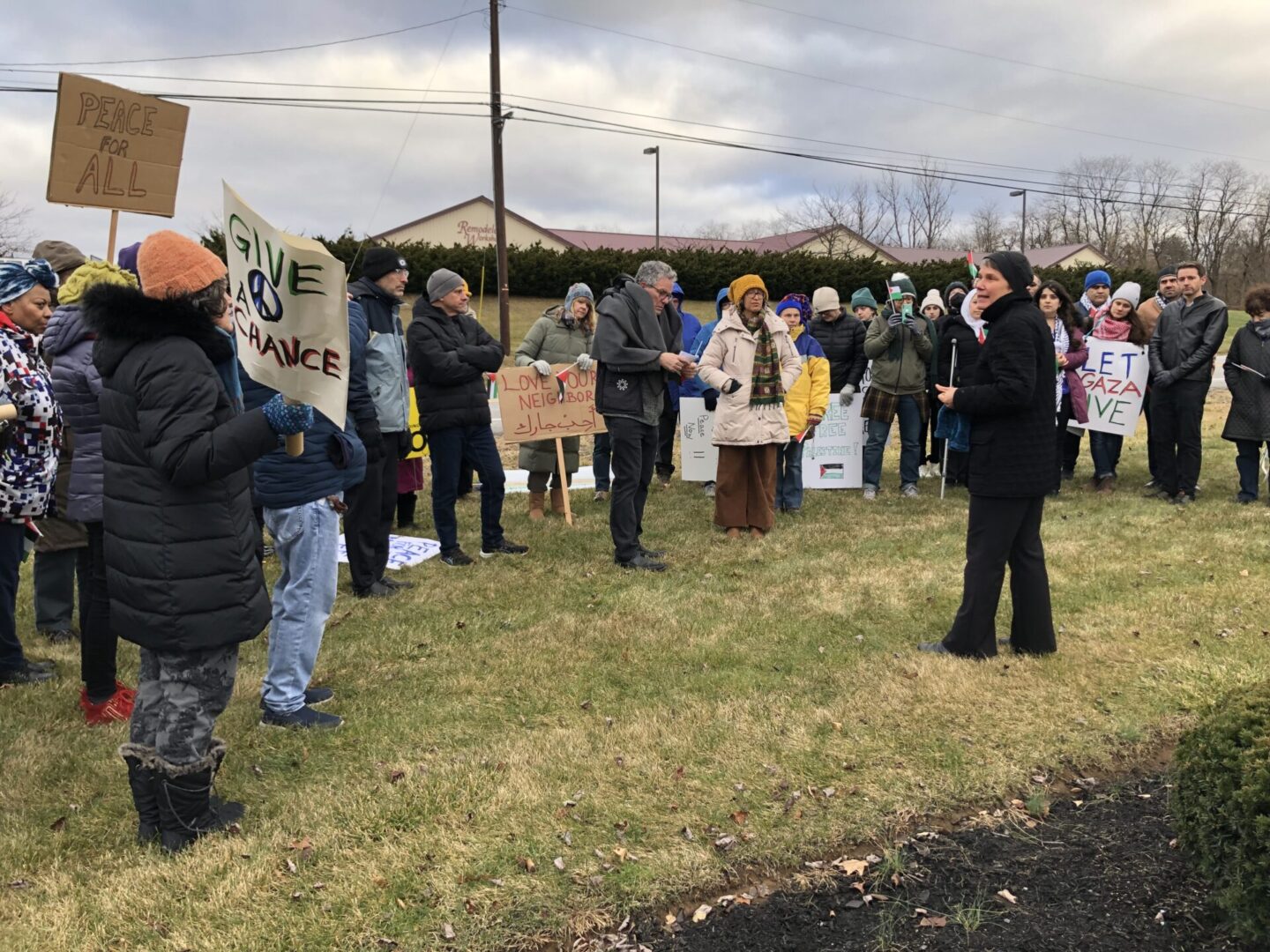Russell Frank offers two columns this week. For a lighter read, click here.
A resolution calling for a ceasefire in Gaza is back on the table for State College Borough Council.
Council will consider a rejiggered version of the resolution today at 6 p.m.
Two weeks ago, council had pulled back the previous iteration of the resolution in the face of objections from some members of the public. The thinking among the majority of council members was that a document meant to unite the community in favor of peace and against both antisemitism and Islamophobia was instead dividing the community.
But supporters of the resolution refused to go away. About 50 of them came to Council’s regular meeting on Monday night and about 20 spoke during the Public Hour, many of them Muslim, many of them Jewish. The Public Hour became a Public Hour and a Half.
Several speakers addressed a question raised by Councilmember Deanna Behring, who favored adoption of the resolution back on Dec. 4: “When does it make sense for a local community to weigh in on an international issue?”
A frequent answer from the audience: when American tax dollars are involved. (The U.S. has given Israel $3.8 billion in aid this year, according to multiple sources.)
Several speakers said they were mystified that a resolution calling for peace would be considered controversial.
Some of the Muslim attendees told Council it’s important that the borough take a stand against Islamophobia because they feel unsafe.
Several accused Council of lacking spine. Failure to take a stand, one speaker said, endorses the status quo.
A selection of comments (with apologies to all the speakers, I’m not going to name any of them because I didn’t catch everyone’s name and it seems unfair to quote some by name and not others):
“We have a right to dissent to what is being done in our name and with our money.”
“We’re not bystanders, but fully complicit.”
“A resolution sends a message about our values as a community.”
“It is our moral obligation to do something, to say something.”
“The dehumanization and obliteration of Gaza does not buy me comfort as a Jew.”
“If you know bad things are happening and you say nothing, you’re saying you’re OK with bad things.”
“Let’s be human. Let’s take action now.”
There were tears, anger and quavery voices. Many spoke longer than their allotted four minutes. When Council, clearly moved by the testimony and perhaps shaken also by some of the more barbed comments, responded by offering to vote on a new resolution at a future meeting, the crowd grew restive. Why not vote now, tonight?
A civics lesson was in order: Unlike on Dec. 4, a vote on a ceasefire was not on Council’s agenda for Monday night. By law, Council cannot vote on an ordinance or resolution unless the public has been notified in advance that the vote is going to take place. It may not have seemed like it to some attendees on Monday, but such “sunshine laws” are actually for the public’s protection: Imagine a scenario where Council enacted an ordinance without anyone who would be affected by it having an opportunity to respond.
In the case of Monday’s meeting, only those in favor of a ceasefire resolution turned out. Again, since the resolution was not on the agenda, there was no reason for those who opposed it to attend. Presumably, some of those people will be there tonight.
Among those who spoke against the resolution on Dec. 4 was Rabbi David Ostrich, leader of Congregation Brit Shalom. He remains opposed to a ceasefire, calling it naïve.
“Of course you want peace,” he said. But in his view, a ceasefire will give Hamas time to “rearm and regroup.”
The new resolution, shorter than the previous one, urges the Biden administration to call for an end to the violence and the release of the Israeli hostages in Gaza, and to facilitate the delivery of humanitarian aid in Gaza. It also condemns antisemitism and Islamophobia and calls for “open, honest, respectful and tolerant conversation among our local community in support of our common humanity.”
Rabbi Ostrich is all for the part of the resolution that addresses Islamophobia and antisemitism in State College. But Council, he told me, lacks both the expertise and the clout to weigh in on international affairs in a meaningful way.
A couple of the speakers on Monday night disagreed. If enough voices are raised, in small towns and in large cities, all around the globe, they said, perhaps leaders will be persuaded to change course. All protesters, including the 50 peace activists who gathered in front of Rep. Glenn Thompson’s Centre County office on Tuesday afternoon, share that exact hope.
However this plays out tonight, I once again came away moved and impressed by the passion, engagement and richness of this small community in Central Pennsylvania.



